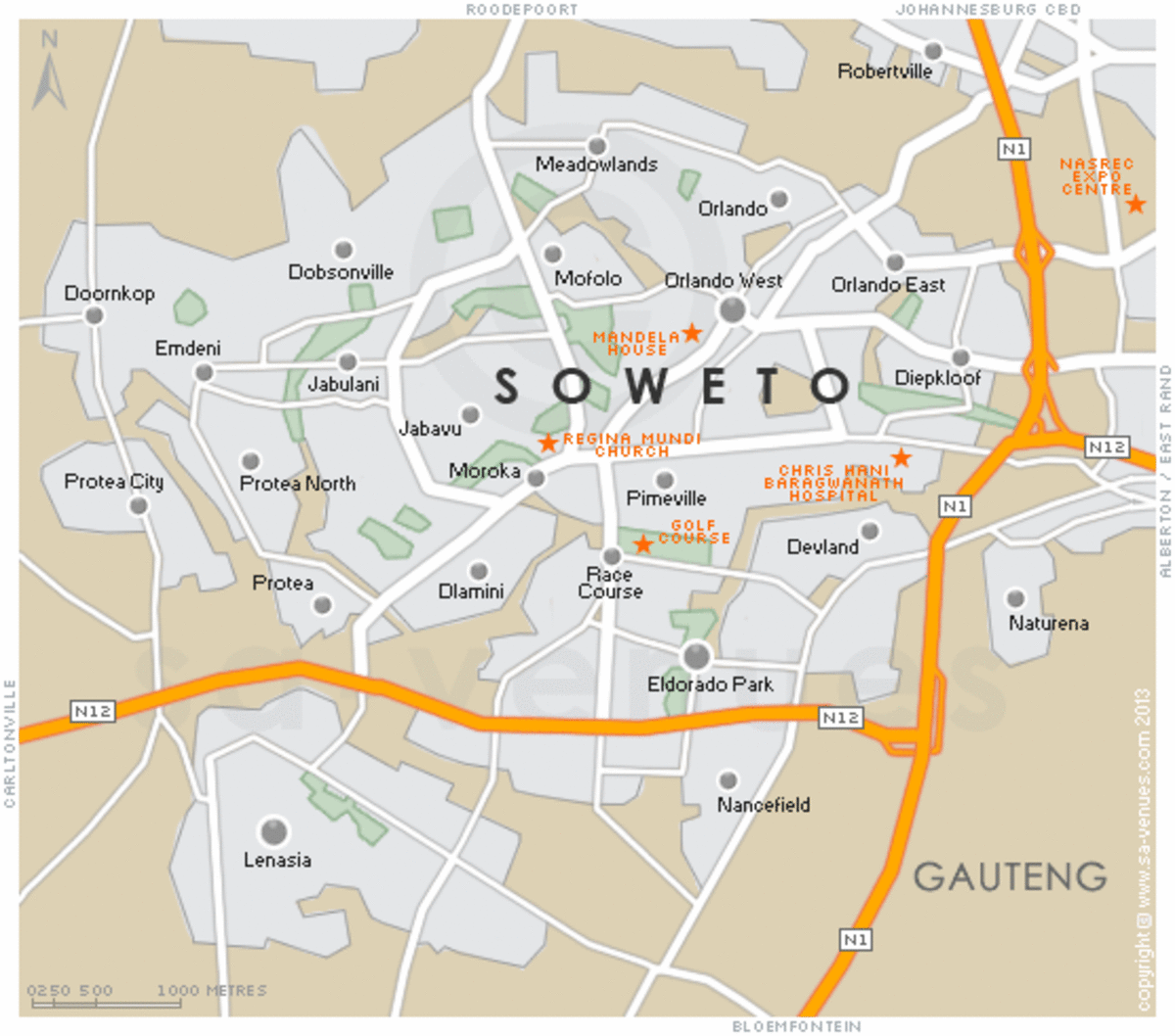To Work From Home, or Not to Work From Home. That's the Question on All South Africans' Lips
Productivity and Working From Home due to COVID-19
Recently one of my readers suggested I write about implied “stress levels of unnecessary travel into unproductive work environments” and how “work-mature people are more productive” when working from home. Certainly, a hot topic with employers and employees across the globe adopting a Work From Home (WFH) business plan due to COVID-19.
People at Work

WFH, Smart Cities, Innovation and South Africa
Never one to shy away from a worthy challenge, I considered the employer/employee WFH experience, Smart Cities, innovation capabilities, and South African’s own position within these. My review of the state of South Africa’s road infrastructure, WFH now and beyond the pandemic, feasibility, productivity, and the country’s workforce maturity offered much food for thought.
Roads Infrastructure, WFH Feasibility, Productivity, and Maturity in South Africa
SOUTH AFRICAN ROADS INFRASTRUCTURE
It's no secret that traffic congestion and its impact on workforce productivity is a challenge in most of the cities of the world, with South Africa’s CBDs being no exception. According to the Institute of Municipal Engineering of Southern Africa (IMIESA), South Africa is in need of a whopping R86 billion just to sustain its current roads, with no less than R31 billion needed just to address the backlog.
It was highlighted when Ingham back in 1992 argued in the Journal of Civil Engineering, how public attitudes and stringent financial constraints, were hampering the construction of new road transport facilities. It was anticipated then already how congestion and subsequent fuel consumption, will only continue to increase for decades yet to come.
Ingham warned that as congestion levels increased, other increases in fuel consumption, air pollution traffic noise, drivers’ stress levels, and important for this review, additional time wastage could not be avoided. it seems now that truer words could not be spoken.
WFH FEASIBILITY
...companies are getting comfortable allowing remote work ... making adoption of technology along with flexible working hours, an unavoidable reality and possibly a lasting change in how South Africans do business
Speaking to Stellenbosch University Business School (USB) Prof Schoeman in his article ‘Work in the time of Corona’ published on 24 March 2020, says more and more companies are getting comfortable allowing remote work with the arrival of COVID-19, making adoption of technology along with flexible working hours, an unavoidable reality and possibly a lasting change in how South Africans do business.
But how to Manage a WFH workforce
According to finweek; “Being office bound is no longer a given and allowing employees to work remotely can prove beneficial” with new management practices calling for new ways of working, to benefit all. As a matter of interest, one way proposed to achieve this is through virtual or e-coaching. Even managerial coaching across cultures, which is becoming a critical skill for employers to have, according to the International Journal of Evidence-Based Coaching and Mentoring, coaching models promote relationship building by managers, along with crucially related behaviours and competencies.
Conversely, it is natural for employees to experience anxiety as a result, and employers are encouraged to communicate openly and honestly about employer vulnerabilities during unprecedented changing times.
The WFH Employee Experience
Many employees simultaneously are tasting the freedom associated with WFH, although not without a measure of accompanying the aforementioned anxiety due to the sudden lack of supervision and direction, lack of job security and let’s not forget, managing new technology, connectivity and trying to stay productive while at the same time, having to juggle their work responsibilities with that of family. Dealing with all of it now, without warning.
Schoeman, however, agrees that “greater independence of remote or flexible work aids employees to develop skills in self-management, communication, and the use of technology” with self-management to include increased “self-motivation, self-discipline, focus, and concentration”.
There is an added benefit in avoiding traffic and finding one feeling less stressed because of it, not to mention the time and money being saved and the more favourable impact on the environment due to fewer fuel emissions. This newly found flexibility certainly allows for a better chance at striking a more meaningful balance between work and family and, important for employers; healthier employees, both physically and mentally which means less sick days or infecting others while in the office.
USB acknowledges how this limited exposure will see a decrease in other communicable disease deaths, arguing the importance for employers to sustain such working flexibility when faced with unexpected challenges, the likes of which South Africa has experienced during relentless load shedding.
WHAT ABOUT PRODUCTIVITY?
...employers are concerned about a lack of productivity when employees who work remotely can’t be supervised or monitored...
Highlighted in 2007 in a journal article for Management Today, entitled ‘Managing a remote workforce', the demands on employees to maintain virtual, long-distance working relationships were addressed, with employers being hard-pressed to reinvent current working patterns and capitalise on a growing remote workforce.
Conversely, recent research favours models that incorporate coaching behaviours alluded to previously, above directive management behaviours and suggests that a coaching management approach positively contributes to an increase in not only employee productivity, but also performance, employee retention and realising organisational goals.
But employers are concerned about a lack of productivity when employees who work remotely can’t be supervised or monitored, and here Schoeman reminds us of the various studies indicating otherwise as research shows how productivity has increased between 13% to 21% because of fewer interruptions, unnecessary meetings and so forth.
Understandably, there remains a certain level of fear of this enormous change while productivity measurements using virtual meetings and the like are still being developed. Such fears extend to employees too, who “want to socialise with co-workers and don't trust their ability to stay focused while working remotely”, says Barclay in the March 2020 article ‘Organisations embracing technology in response to COVID-19’. It begs the question of whether or not the South African workforce is mature enough to cope with a WFH culture.
The obstacle to embracing platforms such as Zoom, Slack, Adobe, Broadcom, Oracle and the like, is mainly due to personal and interpersonal concerns, while employers are eager to maintain oversight of their employees. Circling back to the impact on South Africa’s companies, more research might be the order of the day to determine the effects of cross-cultural management coaching to bolster crises, and in developing assessable targets for working from home during this pandemic and beyond, and ensuring WFH success by making a dogged attempt to improve communication and technological capabilities.
MATURITY IN A SOUTH AFRICAN CONTEXT
Considering Smart Cities
On par with the digital future characteristic of the 21st century, South Africa is focused on the modern-day notion of becoming a Smart City, looking towards technology as a solution to logistical concerns and improvement of overall living. It is even believed that high-speed internet connectivity has become as important as other essential services, ranking 4th as seen in any urban development after access to water, fuel, and electricity.
Counting in South Africa’s favour, the Journal of Management & Administration postulates that “While many cities in the developed world have to maintain outdated infrastructure, Smart Cities can build updated services and facilities from the ground up”.
This again comes back to the development of essential soft skills, and to be successful in a WFH world, employees have to become self-sufficient, effectively managing time, self-discipline and motivation, with improvement in communication and adaptability being crucial areas for development. Managers are not exempted from such critical skills development in motivating and managing a remote workforce, and also will have to improve communication, team cohesion and the proper application of evolving technologies, and its inherent need for innovation.
Bridging the Innovation Gap
…innovation efforts in South Africa are inconsistent, largely accidental, weakly supported, poorly leveraged and disjointed.
According to Moore & Seedat’s recent report published by Accenture Consulting earlier in the year, 85% of our country’s industries are said to be “highly vulnerable to future disruption”, and postulates that leaders in innovation overcome such disruptions by incorporating digital technologies to improve their businesses. Their report stresses that conservative South African companies will fail unless they look to innovation for survival.
In 2012, Jansen van Nieuwenhuizen in Management Today, identified this innovation gap, attributing it as a major cause to explain why so small a percentage of the country’s then GDP was afforded to research and development. Furthermore, data from the time’s Global Innovation Index as well as the Global Competitiveness Index indicated how the gap between innovation and practical knowledge doubled in South African since 2008.
There is no doubt, however, that South Africa does not lack innovative capacity, but upon taking a closer look, continuing weaknesses are being discovered. As Manzini in Management Today so boldly, albeit aptly stated in 2012; “…innovation efforts in South Africa are inconsistent, largely accidental, weakly supported, poorly leveraged and disjointed”, and went on to propose an approach that would enable implementation to “address the structural and operational weaknesses…”.
And for South Africa?
The obstacle to embracing platforms such as Zoom, Slack, Adobe, Broadcom, Oracle and the like, is mainly due to personal and interpersonal concerns
As South Africa boasts the largest economy in Africa, the country in yonder years have succeeded in safeguarding itself against global economic blows, but South Africa’s questionable politics and its economic space has seen significant changes since the last recession. In their article, Livingstone & Otoo outline how “Budget deficits, electricity shortages, debates of land expropriation without compensation” and pollical squabbles have repelled investors; “negatively affecting the country’s economic prospects and making the country susceptible to global economic shocks".
The obstacle to embracing platforms such as Zoom, Slack, Adobe, Broadcom, Oracle and the like, is mainly due to personal and interpersonal concerns, while employers are eager to maintain oversight of their employees. Circling back to the impact on South Africa’s companies, more research might be the order of the day to determine the effects of cross-cultural management coaching to bolster crises, and in developing assessable targets for working from home during this pandemic and beyond, and ensuring WFH success by making a dogged attempt to improve communication and technological capabilities.
At the root of it lies the need for robust innovation capability. How to get there involves aggressive investment in innovation. Conversely, a change-ready, outcome-based and “disruption-mindset” must become the focus in adopting an innovative approach.
Out With the Old, In With the New
Once more Accenture worries that 68% of the more conservative companies continue along with traditional business models, or are only now at the start of the transformation. Investment innovation they say, however, shows growth as more companies are investing in innovation. The issue says Moore & Seedat, could very well be a case of “too little too late”, urging for a more drastic move towards innovation.
Managing the Change









